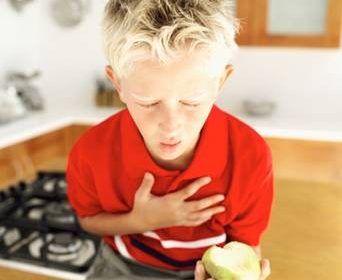The five foods you should never give to children because of choking risks – HSE

Children under the age of three are at the highest risk of choking due to the small size of their respiratory tract, the HSE advises in its new booklet Mychild.ie.
Foods with skins, stone fruits, and small fruits like grapes and cherry tomatoes can all pose choking risks.
There are five foods in particular which the HSE warns against giving to young children.
Never give your child these foods
The HSE advises that these foods are unsuitable for children under the age of three:
- Whole nuts
- Marshmallows
- Chewing gum
- Boiled sweets
- Popcorn
Foods with skins or leaves also require extra care, the HSE warns. Foods with skins are difficult to chew and can completely seal children’s airways.
Take extra care with food with skins or leaves
- Sausages, hot dogs and frankfurters
- Apples and pears
- Tomatoes
- Lettuce and other raw salad leaves
- Spinach and cabbage
The HSE advises removing or peeling skins and cutting into lengthways small pieces no bigger than your child’s small fingernail. Add to mashed food.
Salad leaves should be finely chopped, and spinach and cabbage should be cooked until soft and chopped finely, the HSE warns.
Preparing Food
- Always cut up food to a size that your child can chew and eat safely
- If you need to make chewing easier, change the texture of the food – grate, cook, finely chop or mash it
- Remove the part of food that could choke your child – peel off the skin or remove any strong fibres
Small fruit and vegetables
Foods like grapes and cherry tomatoes and other similar-sized food should be cut into quarters lengthways or smaller
Hard fruit or vegetables
Hard vegetables and fruits like carrots, celery and apples can be grated, finely chopped, cooked or mashed to make chewing easier for small children
Fruit with stones
Stones should be removed from fruits like plums, peaches, and nectarines. The fruits then can be peeled and chopped.
Thick pastes and spreads
Thick pastes like peanut butters and chocolate spreads can stick to a child’s throat and windpipe, making breathing difficult, so pastes should be spread thinly and evenly.
Source: Read Full Article